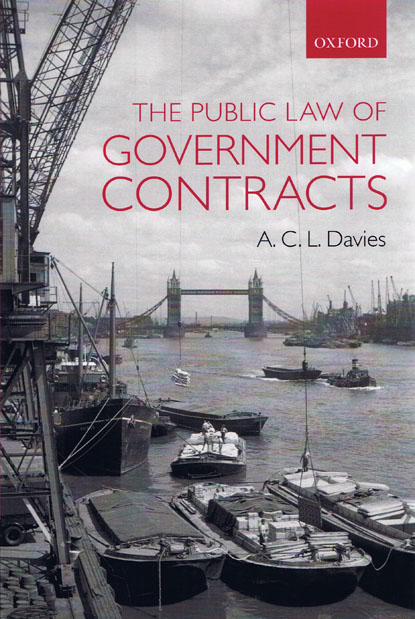
Contract plays a vitally important role in the delivery of public services today. Both central and local government make extensive use of private firms to provide facilities, goods, and services. Government contracts vary considerably from the relatively straightforward competitive procurement of office supplies, to complex, long-term arrangements in which the contractor researches and develops a new piece of military equipment, or builds and provides a fully-serviced hospital over a thirty-year period.
English law's traditional approach to government contracts has been to regard them as ordinary private law arrangements. As a result, they have understandably been neglected by public lawyers in both teaching and research. This book argues that, on closer inspection, constitutional and administrative law (in the form of statute, common law, and government guidance) have been playing an increasingly important role in the regulation of certain key aspects of government contracting.
The book analyses these public law elements in detail and suggests ways in which they might appropriately be developed more fully, in tandem with the underlying private law regime. The book's aim is to raise the profile of government contracts as a proper subject for public law scholarship, whilst at the same time contributing to important contemporary debates on issues such as the public vs private divide, the scope of the judicial review jurisdiction, and the reach of the Human Rights Act 1998.